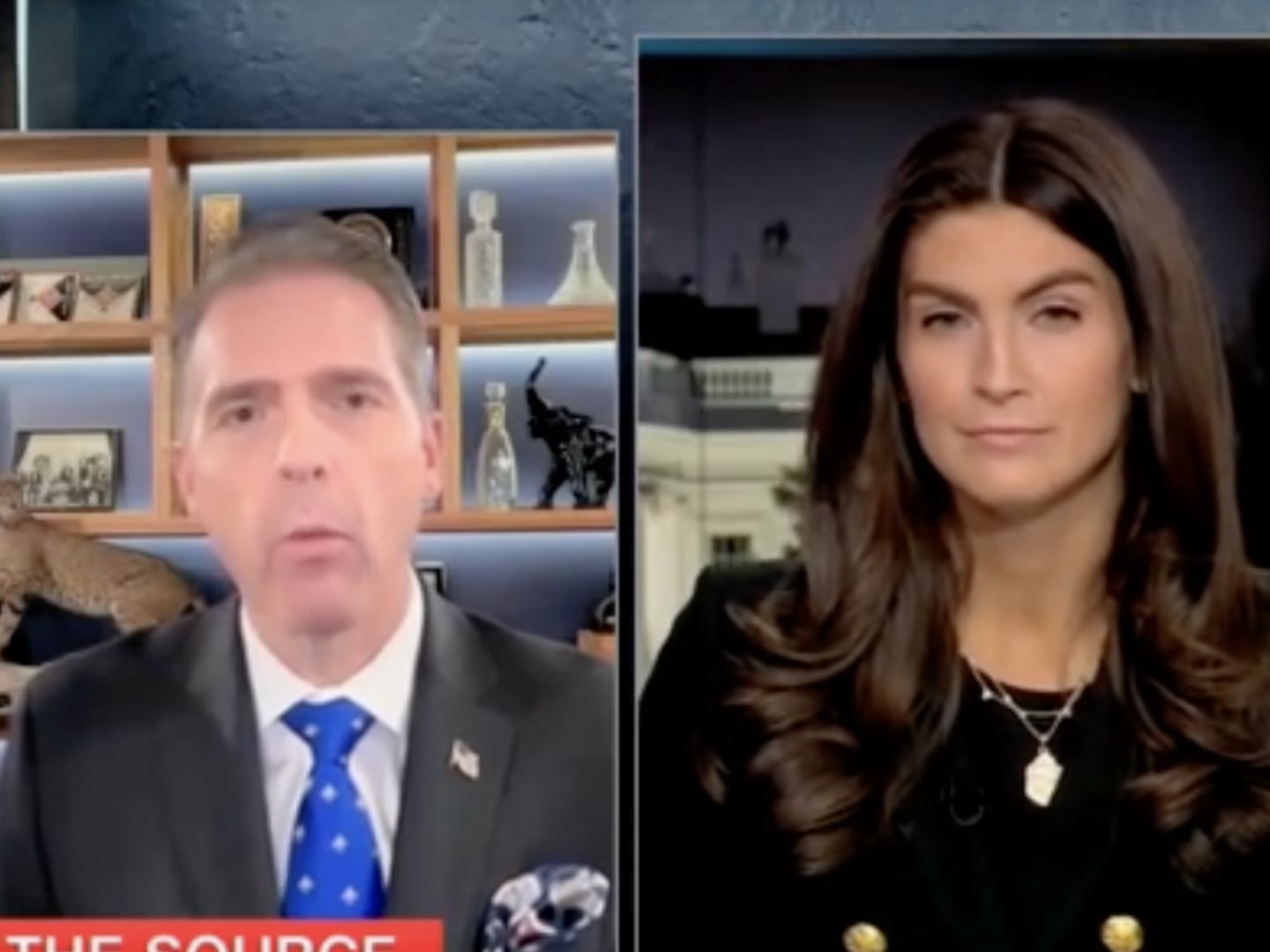“Ban fraternities.” These two words emerged as a popular rallying cry early this year and they have only gotten louder as stories of sexual assault on U.S. college campuses continue to dominate headlines. But after Rolling Stone's rape story debacle, how much momentum does the call to ban fraternities have left? And how do fraternity members feel about their organizations being on the chopping block?
The idea of banning fraternities has been swirling around for the entirety of 2014. Back in January, the editors of Bloomberg View deemed fraternities to be of “dubious value” and suggested that, in some cases, they should be abolished altogether. Inside Higher Ed opened the question of banning frats in September after some schools began suspending fraternity activities. Writing for The Guardian that same month, Jessica Valenti deemed fraternities “irrevocably broken,” holding that they should be banned while also acknowledging that such a course of action would be a “pipe dream.”
And when Rolling Stone reported last month on an alleged gang rape of a woman referred to as Jackie, which she said took place at the Phi Kappa Psi house on the University of Virginia campus, the question of whether or not to ban fraternities cropped up everywhere from MSNBC to Bustle to ThinkProgress to Gawker, where Jordan Sargent argued that it would be wiser to “eradicate the source of so many of these [sexual assaults] in the first place” than to wait for promised reforms.
But just as critics were beginning to connect the dots between fraternity culture and the rising rate of reported sexual assaults at U.S. universities, Rolling Stone disavowed Jackie’s story last week after finding “discrepancies in [her] account” and pressure is already being placed on the University of Virginia to reopen fraternities and sororities, which were to remain closed until Jan. 9 in response to Jackie’s original allegations. Although UVA is standing by its original plans, one of the most tragic casualties of Rolling Stone’s misreporting is becoming clear: We may be in danger of losing an important opportunity to talk about the place of fraternities in the campus sexual-assault crisis.
In this critical moment for the future of Greek life, I reached out to members and former members of various fraternities around the country to ask what role they think fraternities should play in ending sexual assault and to find out if they have any thoughts about Rolling Stone’s retraction.
Why them and why now? Because whatever we make of fraternities, they aren’t going anywhere. Fraternities are almost as old as the United States and they are, in some respects, synonymous with it. They have produced 18 presidents and 85 percent of Fortune 500 executives, and their institutional power in American higher education is deeply entrenched. If we admit the inevitability of fraternities and their continuing influence on college social life, then we also have to accept that what fraternity members think is an important barometer of sexual-assault awareness on college campuses. In other words, if you want to know how a hand will play out, you should look at whoever’s truly holding the cards.
I spoke first with Scott Ellman, a student at Wesleyan University and now the Huffington Post editor-at-large for his campus. Ellman wrote about leaving his fraternity for Mic earlier this year after he began to feel complicit in an increasingly toxic culture of sexual assault on campus, which culminated in a female student’s lawsuit against Psi Upsilon for a rape that allegedly took place in a common room with multiple onlookers. Since then, Wesleyan has suspended that fraternity’s social functions until late next year and required all fraternities to become co-ed within three years.
When asked if fraternities can change the culture that led to the recent incidents at Wesleyan, Ellman responds that they “certainly can” but he fears that “those changes [could] undermine the very foundation on which they’ve been built.” In particular, he identifies an “inherent issue with single-sex houses” wherein “brothers might feel a sense of entitlement” because of their control over the physical space of the fraternity house. But while Ellman has left his own fraternity behind, he is careful to avoid generalization in his comments on fraternity culture writ large. He also tells me that “there are many forward-thinking fraternity brothers” who are trying to become advocates for issues of sexual assault on campus.
One such advocate is Robert Olson, a senior at the University of Illinois at Urbana-Champaign, a member of a Phi Gamma Delta (FIJI) chapter, and a facilitator for the First Year Campus Acquaintance Rape Education program (FYCARE), which provides a mandatory workshop on sexual assault for all entering students. When Olson joined his fraternity, he recalls, “a few of my older fraternity members were FYCARE facilitators and they told me about how rewarding it is and the impact that it makes on people’s lives,” ultimately encouraging him to join. In our conversation, Olson’s knowledge shines through. He is able to reference key statistics about sexual assault on college campuses and he displays a nuanced understanding of alcohol’s role in rape culture.
Olson also notes that the It’s on Us campaign, launched by President Obama in September with a celebrity-filled PSA targeted especially at young men, has been particularly effective at encouraging his brothers to take action and show that fraternity men can actually be gentlemen.” And it is precisely because Olson knows firsthand that some fraternities do advocacy around sexual assault that he seems to resist the idea of a unilateral ban on fraternity activities, such as the current ban at UVA.
“If a house is accused of problems such as sexual assault, then I believe that actions should take place on that house,” he says. “Not [all of] Greek life should be generalized as the problem.”
Erich Handrich, a senior in University of Illinois at Urbana-Champaign’s chapter of Zeta Beta Tau who has gone through the mandatory FYCARE training, agrees with Olson that universities should be more targeted in their actions.
“I think that responses to sexual-assault cases and allegations need to be extremely direct,” he tells me. “Suspension of social activities is something that I don’t think directly combats the problem.”
And an anonymous junior in a fraternity at Emory University feels similarly. Last month, the Interfraternity Council (IFC) at Emory voluntarily suspended all fraternity social activities in response to several reports of sexual assaults in fraternity houses in order to develop an action plan to address these incidents. The IFC ended this ban last week and released a plan that the editorial board of the school newspaper has given a mixed review. Emory is also one of dozens of higher education institutions with open Title IX sexual violence investigations.
The anonymous student I spoke with was “unhappy with the [IFC’s] decision” to suspend “the entire fraternal system” because of “one person’s actions,” referring to the most recent incident of reported sexual assault on campus. In hindsight, however, he feels that the suspension has “had a positive impact on the fraternal community.”
“Brothers are now becoming a little more aware with their actions,” he says. “So although I was unhappy with the [IFC’s] actions, I do see some benefits that came with the freeze.”
But this student also resists the idea that fraternities have a special responsibility to address sexual assault on campus.
“What some people fail to realize is that it is not just fraternities that commit sexual assault,” he suggests. “I think the whole campus has to come together. That would be way more effective.”
Hank Tran, a student in Denison University’s Chapter of Delta Chi, raises the point that larger universities like Emory and UVA face an uphill battle in taking action against sexual assault. At Denison, which has less than 3,000 enrolled students, Tran feels as though “[they] have a great atmosphere” around issues of sexual assault. And like Robert Olson, Tran and several of his fraternity brothers participate in the school’s sexual assault peer education program.
When asked about Rolling Stone’s retraction, Tran condemns the “lack of accurate journalism” but still feels like fraternities that face such allegations have a burden of proof to “re-establish their reputation.” In this respect, Tran might distance himself from the position of the anonymous Emory junior insofar as he suggests that fraternities do have a special role to play in eliminating sexual assault. While acknowledging that promoting safety is “the responsibility of all persons,” Tran believes that “at American colleges, fraternities should be examples of men who serve their community and promote positive change on campus.”
Vincent, a board member for the Beta Theta Pi Foundation, echoes this sentiment, arguing that, “fraternities and sororities are leaders on campus and should be setting the example.” Earlier this week, as the Salt Lake Tribune reports, the University of Utah chapter of Beta Theta Pi won a $3,200 grant, which it will put toward a campaign against rape on a campus where rates of reported sexual assault are on the rise. Vincent praises this effort in particular as “a prime example of being leaders on campus.”
As for the Rolling Stone retraction, Vincent characterizes the publication’s automatic trust of Jackie as a symptom of a broader cultural problem, saying, “We have pushed conversations of sexual assault into the darkness in such a horrible way that when anyone comes out, it is assumed it must be true.” While he believes that the media should “gather both sides of the story,” then, he also suggests that “creating a safe place” in which people can talk about sexual assault without being “judged” could prevent incidents like the Rolling Stone snafu.
Taken together, the fraternity men I spoke with paint a picture of a fraternity culture that could be reaching a critical inflection point in their awareness of sexual assault and their willingness to engage in advocacy. Some believe that suspensions of fraternal activities are warranted, others concur with Peter Smithhisler, the CEO of the North American Interfraternity Conference, who told NPR that suspensions are a “knee-jerk” response. Some believe that fraternities should not be treated differently from the rest of campus, others argue that fraternities should take the lead in educating men on campus and discouraging bystander behavior. All seem to acknowledge that sexual assault is a serious problem that requires campus-wide education.
But as long as studies continue to show that fraternity men are more likely to perpetrate sexual assault and sorority women are more likely to be victims of sexual assault, Greek life will continue to be an important focal point in efforts to make U.S. college campuses safer. To focus inordinately on whether or not these organizations should exist in the first place is to give up on the people who are currently at risk in a Greek system that is not likely to be disbanded anytime soon. We spent 2014 asking whether or not we should ban fraternities. In 2015, maybe we should ask if we can change them.






